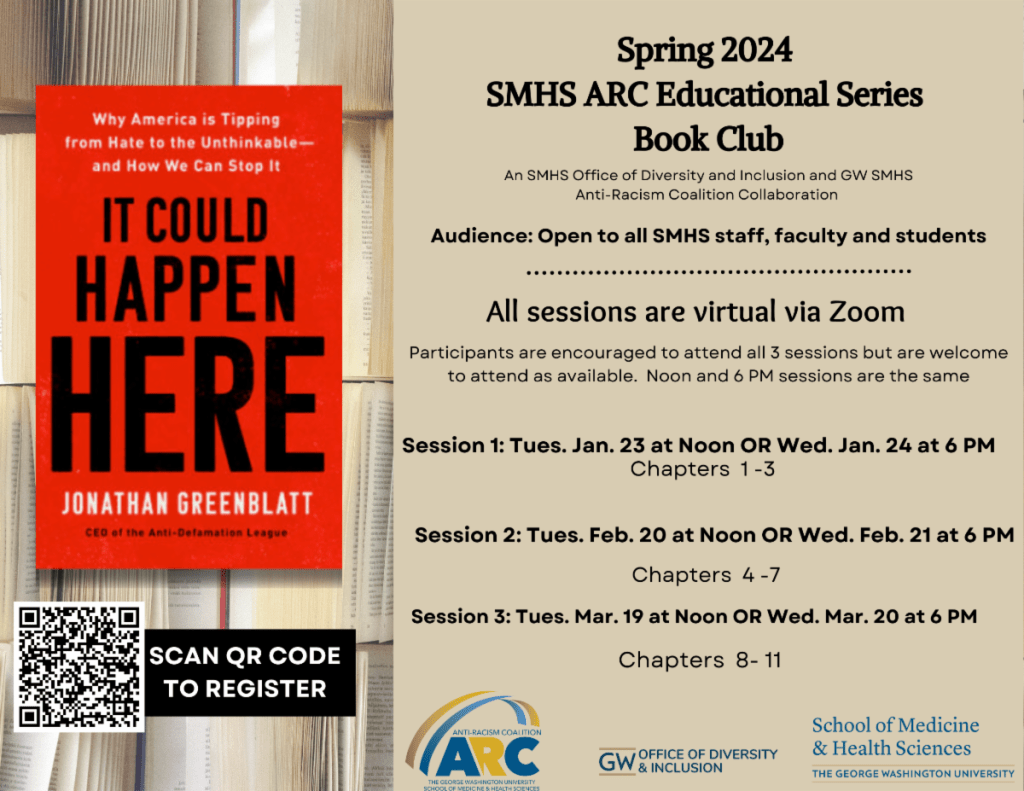
At the end of January each year, the day arrives. International Holocaust Remembrance Day is observed this Saturday, January 27.
Memory and the act of commemoration are paramount in preventing history from repeating itself. International Holocaust Remembrance Day, also known as International Day in Memory of the Victims of the Holocaust, was established by the United Nations in November 2005. The day commemorates the killing, by the Nazi regime and its collaborators, of six million Jews and millions belonging to other populations. January 27 was the date chosen to commemorate this day because it was the date that the Auschwitz-Birkenau concentration and extermination camps were liberated by Allied forces. Other countries also commemorate the Holocaust on different days.
You may have seen the 2022 Himmelfarb Library blog post commemorating this day, which covered doctors and the Holocaust, and another post from that year, which covered the Nazi Medical Research Dilemma. This year, we will focus on evidence that experiencing the trauma of the Holocaust induced genetic and epigenetic changes that are intergenerational. Epigenetics refers to “heritable changes in phenotype which do not involve alterations to the underlying DNA sequence” (Martin, 2014).
In a 2014 study, the first of its kind, blood samples were collected from 80 adult offspring with at least one Holocaust survivor parent. These blood samples were correlated with maternal and paternal PTSD in the parents (Yehuda et al., 2014). Findings showed that the glucocorticoid receptor gene GR-1F was altered, but in different ways, depending on whether the subjects experienced maternal or paternal PTSD. The findings of the study indicated that both maternal and paternal PTSD impact the stress response of offspring via the process of methylation, which is a first-line biochemical process that plays a critical role in the modification of DNA (Menezo et al., 2020).
Systematic review has also been applied to the topic of intergenerational trauma resulting from the Holocaust, Published in 2019, “Intergenerational consequences of the Holocaust on offspring mental health: a systematic review of associated factors and mechanisms”, reviewed 23 studies focused on the impact of the Holocaust on parent and child characteristics and interactions which were found to lead to the development of psychological symptoms, as well as biological and epigenetic variations (Dashorst et al., 2019).
Reviewing the evidence, the authors sought to examine: “association between parental and offspring’s mental health problems;” "perceived parenting and attachment;” “parental Holocaust history;” "additional stress and traumatic life events in Holocaust survivor offspring;” and “cortisol metabolism, epigenetic factors, and genetic predisposition” (Dashorst et al., 2019, pp. 22-23).
Assembling and reviewing this evidence, the authors suggest their findings indicate that, rather than pointing to direct observation of particular disorders in offspring, the impact of Holocaust trauma appears to result in diverse mental health problems that are influenced by characteristics of both the parents and the offspring, suggesting that treatment should be offered to both generations, as well as parenting support for traumatized parents raising children. Intergenerational effects were also found to impact cortisol levels, which regulate the body’s stress response. Holocaust survivor offspring were found to have increased vulnerability to stress.
Evidence related to Holocaust survivors and their offspring offers important guidance on biological mechanisms impacted by trauma, and on the diagnosis and treatment of, and support for, mental health conditions. However, new studies are more difficult to undertake as the generation that survived the Holocaust begins to die off.
Locally, this year’s commemoration of International Holocaust Remembrance Day, which coincides with a surge in antisemitism worldwide, will take place in DC at the United States Holocaust Memorial Museum on Friday, January 26 and Saturday, January 27. Events open to the public include reading of victims’ names and the option to light a memorial candle. On Friday, January 26, between 2-3:45 p.m., Holocaust survivors will be present at the museum to engage visitors about their experiences.
Consider making a trip to the Museum this year to speak with a Holocaust survivor -- the opportunity will not last forever.
Holocaust literature is widely available at GW. This research guide from Gelman Library can help guide your exploration of our collections.
Also, consider joining GW’s SMHS Anti-Racism Coalition for its upcoming discussions of the book It Could Happen Here (available to read online through Himmelfarb Library), by Jonathan Greenblatt, head of the Anti-Defamation League. The ADL was founded in 1913 "to stop the defamation of the Jewish people, and to secure justice and fair treatment to all."

International Holocaust Remembrance Day offers us all an opportunity to reflect, to learn and to consider how we can all work to prevent the conditions that fostered a climate of hate to develop into the historical events that coined the word genocide.
References
Dashorst, P., Mooren, T. M., Kleber, R. J., de Jong, P. J., & Huntjens, R. J. C. (2019). Intergenerational consequences of the Holocaust on offspring mental health: A systematic review of associated factors and mechanisms. European journal of psychotraumatology, 10(1), 1654065. https://doi.org/10.1080/20008198.2019.1654065
Martin S. (2014). Journal Watch review of Influences of maternal and paternal PTSD on epigenetic regulation of the glucocorticoid receptor gene in Holocaust survivor offspring. Journal of the American Psychoanalytic Association, 62(6), 1101–1103. https://doi.org/10.1177/0003065114560792
Menezo, Y., Clement, P., Clement, A., & Elder, K. (2020). Methylation: An ineluctable biochemical and physiological process essential to the transmission of life. International journal of molecular sciences, 21(23), 9311. https://doi.org/10.3390/ijms21239311
Yehuda, R., Daskalakis, N. P., Lehrner, A., Desarnaud, F., Bader, H. N., Makotkine, I., Flory, J. D., Bierer, L. M., & Meaney, M. J. (2014). Influences of maternal and paternal PTSD on epigenetic regulation of the glucocorticoid receptor gene in Holocaust survivor offspring. The American journal of psychiatry, 171(8), 872–880. https://doi.org10.1176/appi.ajp.2014.13121571


